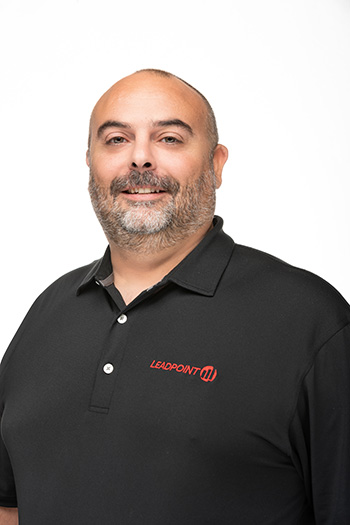The last 20 years have brought many changes to the waste and recycling industry, all of which I’ve watched through the eyes of Leadpoint Business Services. We are a specialty workforce company that helps recyclers take the chaos out of MRF operations and maximize the productivity of their operation.

Len Christopher
Some of the shifts I’ve seen have been predictable and manageable, while others have shaken our industry to its core, the most significant of course being China’s ban on importing foreign recycling.
China’s “National Sword” policy and its effect on commodity prices is an important and regular topic among those of us in the recycling business. China is a recent change that deserves ongoing discussion, but not here.
I want to set China aside to look further back in time and talk about three other changes in our industry and what they’ve taught me and the Leadpoint team over the last two decades.
People
Simply put, it’s harder to find people to work in MRFs today than it was 20 years ago. I see two factors at play here.
The first is economics: Unemployment is low, jobs are plentiful and there are more options for general laborers than there were even five years ago.
Second is demographics: Working in a MRF is difficult, and my experience is that younger people don’t want these jobs. They don’t want to work as hard as their older counterparts and older workers are leaving the workforce or choosing jobs that are better suited to their aging bodies. And for both groups, safety is a growing issue.
What I’ve learned is that we need to treat our sorters, line leads and managers differently than we did when we started Leadpoint in 2000. We have had to adjust our recruiting practices to attract people with computer skills. We’ve had to change our employment proposition to make our jobs a more attractive job choice than other options out there.
Today, Leadpoint’s sorters are full-time employees. We offer them a career path, ongoing safety training and benefits. We’ve significantly reduced turnover and improved productivity at the MRFs we support. And, a stable workforce has meant a safer workforce.
Technology
The notion of robots and artificial intelligence in MRFs was in its infancy 20 years ago. Today, technology and machinery are getting smarter and more efficient every day, which is great for our industry.
As an employer, Leadpoint is keenly interested in the role of robots and AI in America’s MRFs. Rather than foreseeing the demise of humans at work in MRFs, I firmly believe that there will always be a role for people in recycling plants, but what those people do will change.
Today, we have employees who run machines with a tablet instead of a control panel. We are able to collect data on sorters’ performance down to the individual level and make it available to our customers through an app, in real time, which allows us to do a better job of managing productivity, downtime and quality.
I’ve also watched how technology has changed the material that comes into our customers’ facilities. Twenty years ago, people didn’t have smartphones. They got their news and advertising on paper and drove to the mall to do their shopping. Now, there’s less newspaper, more junk mail and mixed paper, and a lot more brown boxes. MRF infrastructure has had to change to keep up.
Since Leadpoint started, a lot of municipalities that were running multiple-stream programs have shifted to single stream … and vice versa. Such program changes have required operating changes inside the MRF for our employees, from scheduling hours and days to retraining people on the sort line. We have to be nimble partners to our customers and attentive managers of our employees. I expect program adjustments to continue into the current decade.
Consumers
I believe people truly want to do the right thing when it comes to recycling and protecting the environment, that they prefer turning their garbage into something new and useful rather than sending it to a landfill. I had great hopes 20 years ago that conscientious recycling would become the norm.
But recycling is confusing, with a lack of standards in the packaging industry, recycling programs that vary by location and even multiple programs within the same community. When I formed Leadpoint, I thought people would learn and understand how and what to recycle. I watched municipalities work hard to create effective recycling programs.
Over time, I’ve seen the opposite. Lack of education has created more and more challenges in getting clean material. Rising costs have been difficult to pass onto consumers, who naturally want to pay less for services, not more. And skepticism about what actually gets recycled has increased.
That’s why I’m excited to see more and more curbside bin audit programs instituted and increased funding behind initiatives that put the recycling ball back in the consumer’s court. For example, Leadpoint started working with the city of Atlanta on a bin audit program in 2019. We’ve seen good improvement in that market and look forward to similar results in other communities.
The future
The Leadpoint team and I are bullish on recycling and excited about the future. I know we will have to continuously adjust our business to meet the needs of America’s workforce. I know that technology will become more pervasive in the operation of every MRF we support. And I trust that consumers will not give up on recycling but, instead, will learn and adjust their behavior and do the right thing with their waste.
Len Christopher is chief operating officer of Leadpoint Business Services, where he directs the company’s work to improve the productivity, efficiency and profitability of each customer’s plant.
The views and opinions expressed are those of the author and do not imply endorsement by Resource Recycling, Inc. If you have a subject you wish to cover in an op-ed, please send a short proposal to news@resource-recycling.com for consideration.